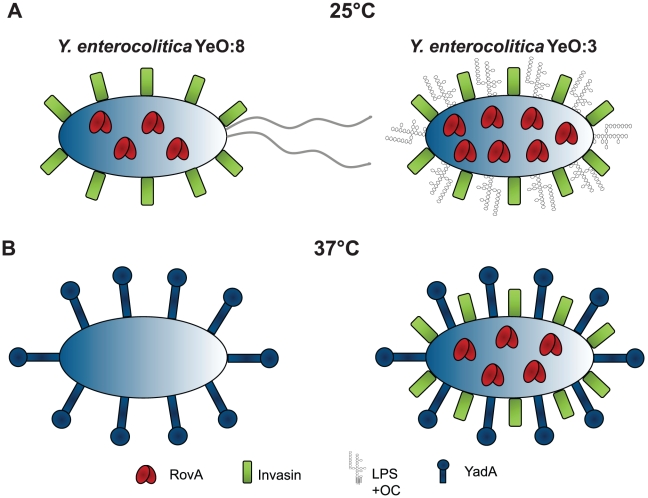Figure 13. Comparison of Y. enterocolitica O:3 and O:8 mediated temperature regulated control of host cell invasion.
Model of virulence factor expression of Y. enterocolitica O:3 and O:8 in response to temperature. (A) At moderate temperature, rovA expression is induced in Y. enterocolitica O:8 which leads to activation of invasin expression. Furthermore, flagella production is activated and enhances host cell contact, and LPS molecules are synthesized which do not interfere with invasin function. This leads to an efficient internalization of the serotype O:8 strains after growth at environmental temperatures. At 37°C, RovA is rapidly degraded resulting in downregulation of invasin. In addition, flagella and O-antigen production is repressed, whereas synthesis of the adhesin YadA is induced which allows efficient adhesion, but no internalization into epithelial cells. (B) Y. enterocolitica O:3 produce similar and significantly higher amounts of invasin at environmental and body temperature due to an IS insertion into the invA upstream region and a stable RovA activator protein both abolishing H-NS mediated repression. However, internalization into host cells is strongly reduced at 25°C due to steric hindrance by the unique O-antigen and repression of YadA which strongly enhances and stabilizes host cell interactions at 37°C. LPS+OC: lipopolysaccharides with O-antigen and outer core.

